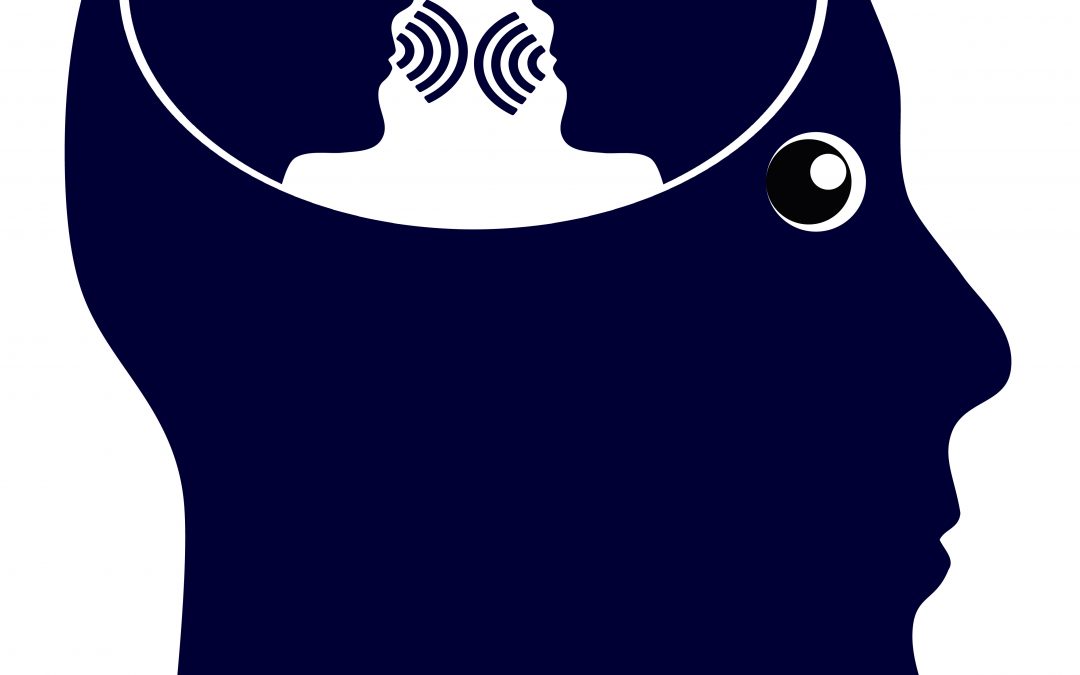In my last blog I talked about using your surroundings to ground you in the present and to notice the reality of where you are – in an attempt to manage fear and anxiety. We can also use our mind to alleviate anxiety and lack of confidence by being aware of what we say to ourselves secretly in our head and how we respond to that self-talk. There is a process called Gestalt which we can use to do that.
There are many meanings and applications of the word ‘Gestalt’. There is a set of principles used in design which describe how the human eye perceives visual elements. They aim to show how complex scenes can be reduced to more simple shapes. Also to explain how the eyes perceive shapes as a single united form rather than the separate simpler elements.
In Gestalt therapy, the intention of the therapist is for the client to gain greater awareness of their experience of being in the world by staying present and processing things in the hear and now. In a sense is the act of ‘mindfulness’ – being with what is.
When we are anxious, fearful or lack confidence we can become fixated on one aspect of a situation rather than seeing it as a whole. In fear, we can do this by focussing on the future and listening to our internal chatter.
Have you ever been standing at the front of a room giving a presentation, looked at the audience and thought “They look really bored – I’m not doing well here”? You are making a judgement about the situation by what you see – not what you know for sure. You are looking at one aspect, not the whole.
Through working on myself and getting feedback from others, I know that when I am concentrating or listening, I can look angry. I often wonder what my face looks like when I am sitting in an audience listening to something that I find really interesting. I know that I can look really fed up or angry – when I am not.
If you look at the audience and tell yourself something negative about them and then translate that into something negative about you and your performance, you are listening to your internal negative voice. Your internal voice can be in the form of questions:
What if I fail?
What if they laugh at me?
What if I can’t deliver?
What if they say no?
Or definitive statements:
They aren’t interested in what I have to say?
I’m messing up here.
This is not going well
If you listen to your internal negative voice and believe it, it will influence the way you perform. It can become paralysing and prevent you from doing the things you want to do. The good news is that you can learn to manage this internal voice.
How to manage your internal negative voice
Accept that this voice is always going to be there. The truth is everyone has one. However, once you realise it and notice it, then it will seem to be there all the time that’s because, generally, it is. The way to overcome it is to manage it.
You can work on this internal voice over time and reduce its frequency and impact on you but, right now, let’s talk about how you can manage it in the moment.
- First of all, you have to catch it. You have to be aware of what you say to yourself and when you say it.
- You hear yourself say “This is not going well” or “They’re going to laugh at me” etc.
- Notice it, hear it.
- Recognise that it is just your negative voice. You don’t know if it’s true. In that moment, you either don’t know if it’s going well or whether they are going to laugh at you (I hope not). This stage is key.
- Because you know that it is your negative voice and it is created by you – you can choose not to listen to it.
- You can choose to have a different response. Counteract the statement by saying something like “Right now I don’t know if that is true, it’s just my negative voice”.
- You can choose to put that thought aside and carry on.
It takes courage and practice, but you can master it. Over time it’s possible to reduce its impact and frequency and even laugh at it when you hear it. Because sometimes it is ridiculous what we tell ourselves.
Contribution by Elaine Flook – see more articles at elaineflook.com
Elaine is a Performance Therapist and Consultant to Bookable.

